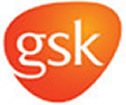 Just one day after a federal judge ruled large parts of New York’s new attorney advertising rules unconstitutional, the State of New York has said it will appeal. Given what I thought were some particularly empty arguments in the briefs by the State, as opposed to those raised by Public Citizen on behalf of itself and an upstate law firm, I find this surprising.
Just one day after a federal judge ruled large parts of New York’s new attorney advertising rules unconstitutional, the State of New York has said it will appeal. Given what I thought were some particularly empty arguments in the briefs by the State, as opposed to those raised by Public Citizen on behalf of itself and an upstate law firm, I find this surprising.
In a squib in today’s New York Law Journal:
The state will appeal a federal judge’s ruling that some new attorney advertising rules violate lawyers’ free speech rights. Michael Colodner, counsel to Chief Administrative Judge Ann T. Pfau, said yesterday that court administrators have asked Attorney General Andrew Cuomo to appeal Northern District Judge Frederick J. Scullin’s decision in Alexander & Catalano v. Cahill, 07 Civ. 117 (NYLJ, July 24). Mr. Colodner said Mr. Cuomo’s office will also be asked to move for a stay of a permanent injunction Judge Scullin issued prohibiting the enforcement of portions of the advertising rules he found unconstitutional. The rules, unveiled by the four presiding Appellate Division justices last June and which took effect Feb. 1, are designed to dignify advertisements by lawyers and to prohibit them from promising to deliver monetarily for clients. Judge Scullin ruled the state had failed to show that barring more flamboyant advertising, such as that done by attorneys who dub themselves ‘heavy hitters,’ would protect the public from misleading attorney promotions. He also observed that less restrictive steps like adding disclaimers at the end of ads might be just as effective as blanket prohibitions of certain kinds of content in the advertisements. New York State Bar Association President Kathryn Grant Madigan said in a statement yesterday that the group agrees with Judge Scullin and wants to work with the appellate divisions to ‘develop rules that strike an appropriate balance within the constitutional framework.’
See also:
Nicole Black at Sui Generis has a huge number of blog postings on this subject going back to June 15, 2006, which can be found at this link: NY Lawyer Advertising Rules.
Greg Beck, the lead lawyer at at Public Citizen that handled the matter, wrote this up the other day, at this link: New York’s Attorney Advertising Rules Held Unconstitutional
Some of my own blog postings on the subject follow, for those that want more:
- New Attorney Advertising Rules (Is This Blog an Advertisement?) (1/5/07)
- Is My Family Photograph An Ethical Violation in New York? (1/24/07)
- New York’s New Attorney Ad Rules and First Amendment Issues (1/27/07)
- New York Responds to Lawsuit Challenging New Attorney Advertising Rules — By Banning Humor (1/28/07)
- New York Attorney Advertising Rules – Update (5/29/07)
Addendum 7/27/07 – Upset of Few Attorney Advertising Rules Could Signal Return of ‘Heavy Hitters’ (NY Law Journal via Law.com)
(Eric Turkewitz is a personal injury attorney in New York)



